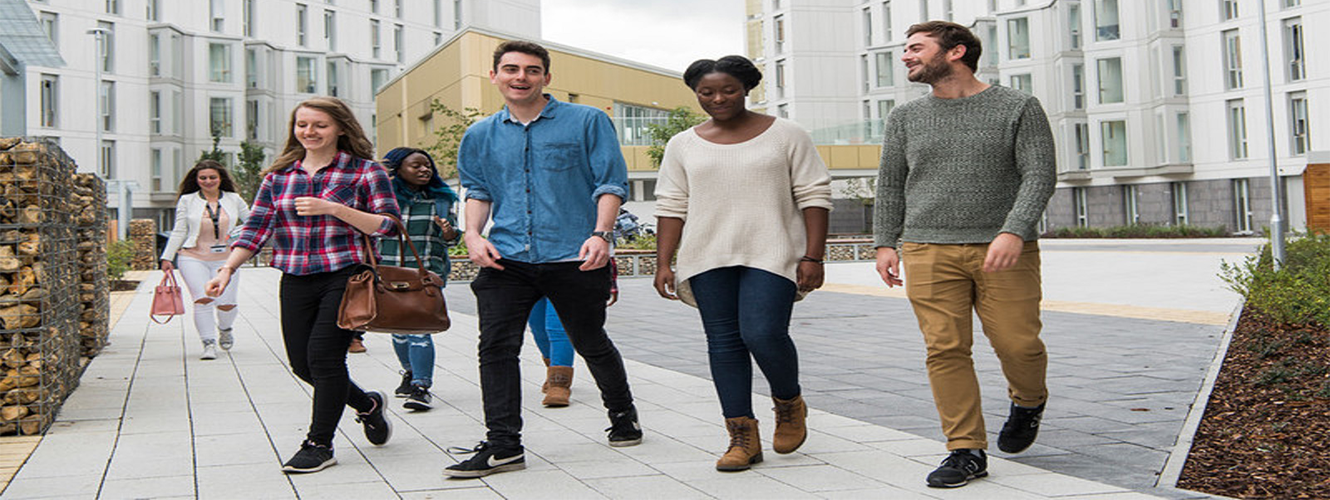UK116 BSc Geography with a Placement Year University of East Anglia
-
THÔNG TIN CHUNG
Explore our dynamic and ever-changing world – from volcanoes and landslides to climate change and biodiversity.
You’ll gain a solid understanding of the challenges facing our planet, and develop valuable practical experience through various field courses. Alongside this you’ll have the opportunity to learn specialist theory in areas such as hydrology, geomorphology, meteorology, population ecology and environmental economics.
As your course progresses you’ll continue to develop your skills as a geographer across a range of specialisms – from geographical information systems to environmental policymaking, biogeography, international development, climate change and natural hazards.
You’ll graduate with the practical skills and theoretical knowledge to start a fascinating geographical career or progress to further study.
ABOUT
Our BSc Geography with a Placement Year degree covers both physical and human geography, focusing on the interactions between the natural environment and human society. Situated in the School of Environmental Sciences, with modules available from the School of International Development and School of Biological Sciences, you’ll benefit from a range of fascinating optional modules allowing you to tailor your degree to your own interests and career aspirations.
During your first year, you’ll learn about key geographical concepts, discover the latest about global environmental challenges, study how our dynamic planet works and get outside to develop your skills during practicals, on field trips as well as a six-day residential field course. You’ll also choose between a module on the interplay between sustainable development and biodiversity and one on understanding our atmospheres and oceans.
As you progress through the course, you’ll continue developing your skills as a geographer across a range of specialisms, including geographical information systems (GIS). You’ll be able to shape your degree around your interests by choosing optional modules covering topics such as geomorphology, soils, biogeography, environmental economics and policymaking, climate change and natural hazards.
In your final year independent research project you’ll put into practice all the skills you have developed, exploring in detail a topic that fascinates you.
Our course is renowned for its quality and teaching excellence.
-
CƠ HỘI NGHỀ NGHIỆP
PLACEMENT YEAR AND STUDY ABROAD
Your Placement Year will ensure you graduate with relevant work experience, putting you one step ahead of your peers.
Not only will you see first-hand how your chosen field operates, you’ll boost your chances of progressing within that sector through valuable contacts and insight.
Your studies will benefit too as theory is transformed into reality – under the real pressures of time and money.
You’ll be expected to seek your own work placement. In the first two weeks of your second year you’ll write a CV and apply to a range of companies. Not only will this ensure that you work within your preferred field, it will also provide you with the essential job-hunting skills you’ll require after graduation. We’ll, of course, offer our guidance and support while you are identifying and negotiating placement opportunities.
During this year you’ll be supported by an industrial supervisor and a mentor from the university. You and your industrial supervisor will feed back during the placement to ensure that it is progressing well, and your UEA mentor will visit you during the year.
Please note that we cannot guarantee any student a work placement as this decision rests with potential employers.
If you’re unable to secure a work placement by the end of your second year you’ll have the option to transfer onto the equivalent degree programme without a Placement Year.
AFTER THE COURSE
Employability is embedded in our modules, helping you develop your career and skills throughout your course. We work closely with UEA’s Careers Service to help you meet employers (including alumni), explore career options, speak to industry mentors, and apply for internships, volunteering, and graduate jobs.
As a Geography graduate you could go on to a very wide range of careers, joining our previous graduates, who have a high rate of employment. You could work for national and international agencies, private sector or governments in the areas of environmental and resource management, climate change, economic and social development, planning, or policy making.
Right now there’s demand for graduates to work in climate change, energy systems, and land or water resource management. Or you might choose to pursue a higher degree, such as an MSc or PhD.
CAREER DESTINATIONS
Examples of careers that you could enter include:
-
Sustainability officer
-
Environmental consultant
-
Waste and recycling manager
-
GIS technician
-
Cartographer
-
Transport planner
-
- ĐIỀU KIỆN ĐẦU VÀO
- ĐIỀU KIỆN NGÔN NGỮ
- HỌC BỔNG
- ĐỊA ĐIỂM
Tóm tắt
-
Phí ghi danh
0
-
Độ dài khoá học
4 năm
-
Kỳ nhập học
Tháng 9
Phí Cơ Bản
-
Loại Tiền
-
Học Phí
Trên năm -
Phí Sinh Hoạt
Trên năm -
Tổng







